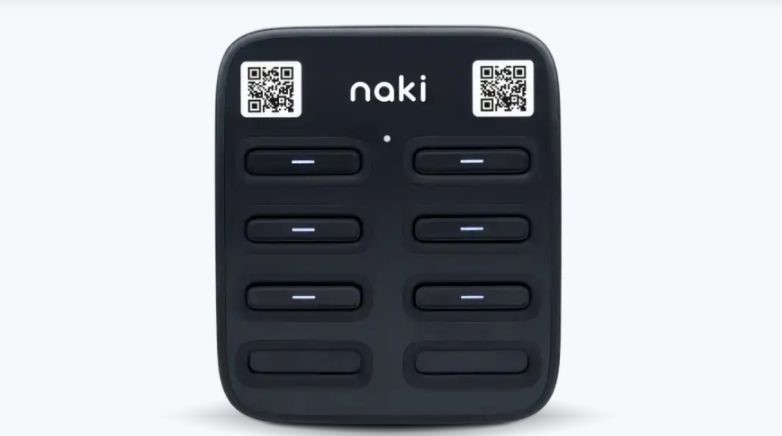Naki Franchise
Are you considering diving into the world of franchising? The Naki franchise might just be the golden opportunity you’ve been looking for. With a unique concept and strong brand presence, it promises not only a chance to run your own business but also access to extensive support and resources. But before taking the leap, it’s essential to understand one critical aspect: the Naki franchise cost.
This isn’t just about numbers; it’s about unlocking potential. In this article, we’ll explore everything from initial investments to ongoing fees—helping you determine if this franchise is worth every penny. Whether you’re a seasoned entrepreneur or a first-time business owner, understanding these financial components can pave your path toward success in the Naki franchise journey. Let’s dive deeper!
Benefits of Owning a Naki Franchise
Owning a Naki franchise brings numerous advantages that can set you on the path to entrepreneurial success. One significant benefit is brand recognition. Naki has established itself as a trusted name, making it easier for franchisees to attract customers right from the start.
The support system provided by Naki is another major plus. Franchise owners receive comprehensive training and ongoing assistance in marketing, operations, and management. This guidance helps them navigate challenges effectively.
Additionally, there’s a sense of community among Naki franchisees. Networking opportunities allow owners to share experiences and strategies, fostering collaboration.
Moreover, being part of an innovative business model means staying relevant in today’s market. With constant updates and adaptations from the corporate team, franchisees are equipped with tools that enhance competitiveness.
Owning a Naki franchise offers financial potential through multiple revenue streams while aligning with growing consumer trends related to health and wellness.
Factors That Affect Naki Franchise Cost
When considering the Naki franchise cost, various factors come into play. Location is crucial. Urban areas often demand higher investment due to increased rent and operational expenses.
The size of your franchise also matters. A larger outlet usually incurs greater costs for inventory, staffing, and utilities.
Franchise experience can influence initial fees too. First-time owners might face additional training costs compared to seasoned entrepreneurs who know what they’re doing.
Market conditions are another variable. Economic fluctuations can affect supplier prices and consumer demand, impacting profitability.
Brand reputation holds weight in determining overall cost structure. Stronger brands may have higher upfront fees but potentially offer better returns through established customer loyalty and marketing support.
Initial Investment and Start-up Costs
When considering the Naki franchise cost, it’s essential to understand initial investments and startup costs. Your entry into this business model typically includes several key components.
First, you’ll need to budget for franchise fees. This upfront charge secures your rights to operate under the Naki brand name.
Next comes equipment and inventory purchases. Depending on your location, these expenses can vary significantly but are crucial for getting started.
Don’t forget about leasing or purchasing a site. Location plays a vital role in attracting customers and ensuring consistent revenue.
Additionally, you should account for marketing expenses aimed at launching your new venture effectively. Promotional activities help establish brand recognition from day one.
Consider operational overheads like utilities and employee wages as part of your financial planning before opening doors to customers. Every detail matters when calculating the total investment required.
Ongoing Fees and Royalties
Owning a Naki franchise comes with ongoing fees that are essential for maintaining brand integrity and operational support. These fees typically include royalty payments, which are calculated as a percentage of your gross sales.
These royalties help fund national marketing efforts and provide you access to valuable resources. This ensures that each franchisee benefits from the collective power of the brand while reaching a wider audience.
In addition to royalties, there may be other ongoing costs like technology fees or contributions towards local advertising campaigns. Understanding these expenses is crucial for effective financial planning.
While these fees might seem daunting at first glance, they can lead to greater profitability in the long run by leveraging established brand recognition and customer loyalty. Balancing these investments against potential revenue growth is key for every franchise owner navigating their path to success.
Additional Expenses to Consider
When budgeting for a Naki franchise, it’s essential to factor in additional expenses that can impact your overall financial commitment. Beyond initial investments, various ongoing costs will play a role.
Marketing and advertising are necessary to build brand awareness and attract customers. This includes digital campaigns, local promotions, and social media efforts.
Don’t forget about utilities like electricity, internet service, and water. These monthly bills can add up quickly if not planned for in advance.
Insurance is another crucial cost that ensures you’re protected against potential risks. This could include liability coverage or property insurance depending on your location.
Consider staffing needs. Employee wages contribute significantly to expenses but are vital for smooth operations and excellent customer service.
Understanding these costs helps create a more accurate financial picture as you embark on your journey with the Naki franchise.
Potential Profits and Return on Investment
When diving into the Naki franchise cost, it’s essential to understand potential profits and return on investment (ROI). The allure of owning a Naki franchise lies in its promising financial returns.
Many franchisees report impressive revenue figures. With a well-recognized brand, customer trust translates into consistent sales. This reliability can lead to higher profit margins than independent businesses.
ROI is another crucial factor for aspiring owners. Typically, franchises tend to have defined structures that allow for quicker break-even points compared to starting from scratch.
Investing in training and support increases your chances of success. A solid foundation equips you with tools to maximize profits efficiently.
While individual results vary based on location and management skills, the overall framework supports a path toward profitability within a reasonable timeframe. Understanding these dynamics helps clarify if this venture aligns with your financial goals.
Support and Training for Naki Franchisees
Naki Franchise offers robust support and training programs for new franchisees. From the moment you join, you’ll receive comprehensive onboarding that covers every aspect of the business.
The initial training phase includes hands-on experience in operations, customer service, and marketing strategies. This immersive approach ensures you feel confident when opening your doors.
Ongoing support is another hallmark of the Naki system. Franchisees can access a dedicated support team whenever questions arise or challenges surface.
Regular workshops and seminars keep owners updated on industry trends and best practices. Networking opportunities with fellow franchisees foster a sense of community while sharing valuable insights.
This commitment to education empowers franchise owners not just to survive but thrive in today’s competitive market.
Success Stories from Current Naki Franchise Owners
The Naki franchise has become a beacon of success for many entrepreneurs. Take Sarah, for instance. After joining the Naki family two years ago, she transformed her passion for healthy living into a thriving business. Her store is not just profitable; it’s become a community hub.
Then there’s James, who started with minimal knowledge about franchising. With support from Naki’s training program, he quickly learned the ropes and doubled his revenue within months. His story highlights how accessible this opportunity can be.
Many owners share their experiences on social media platforms, celebrating milestones and customer loyalty. They often emphasize that the camaraderie among franchisees creates a strong support network.
These narratives illustrate that investing in a Naki franchise isn’t merely about financial gain—it’s also about personal growth and community impact. Each owner brings unique strengths that contribute to their journey toward success.
Is the Naki Franchise Cost Worth It? A Comprehensive Guide
Evaluating the Naki franchise cost involves looking beyond just numbers. It’s about understanding the value that comes with it.
Owning a Naki franchise offers distinct advantages, such as brand recognition and an established customer base. These factors can significantly reduce your marketing expenses compared to starting from scratch.
Consider support systems too. Naki provides training, operational guidance, and ongoing assistance—elements that add immense value to your investment.
Yet, scrutinize personal financial readiness. The initial costs might seem steep; however, think about potential profit margins and ROI in the long run.
The comprehensive nature of this business model often leads to quicker breakeven points for franchisees when compared to independent ventures. This dynamic can make every dollar spent feel much more worthwhile over time.
Breaking Down the Naki Franchise Cost: Investment Insights
Understanding the Naki franchise cost is crucial for aspiring business owners. This investment isn’t just about cash; it’s about planning and growth potential.
The initial costs can vary widely based on location and size of the operation. Franchise fees are one aspect, but don’t overlook real estate expenses or renovations needed to make your space inviting.
Operating costs come next. These include utilities, staff salaries, and inventory purchases that maintain daily operations.
Additionally, ongoing royalties contribute to brand support while ensuring you benefit from established marketing campaigns.
Thinking long term? Consider how these factors influence profitability over time. A well-researched budget will pave the way for a smoother journey into ownership with fewer surprises along the way.
Balancing all these elements gives you a clearer picture of what it takes to thrive in this venture.
Naki Franchise Cost Explained: Your Path to a Profitable Business
Understanding the Naki franchise cost is essential for prospective business owners. This investment not only includes initial fees but also ongoing expenses that can impact your profitability.
When you consider a Naki franchise, think about the comprehensive package it offers. The upfront costs cover everything from equipment to marketing support. These elements are crucial in setting up a successful operation.
Ongoing royalties and fees are another aspect of this journey. While they represent an additional expense, they provide access to valuable resources and brand recognition that can drive customer loyalty.
Assessing potential profits alongside these costs paints a clearer picture of your expected return on investment. With proper management and dedication, many franchisees find themselves reaping significant financial rewards over time.
Being aware of all associated expenses helps you plan effectively and enter the market with confidence. It’s this level of preparedness that separates thriving franchises from those struggling to keep afloat.
Discover the True Naki Franchise Cost: A Detailed Analysis
When considering the Naki franchise cost, it’s essential to look beyond the initial investment and ongoing fees. A detailed analysis reveals various elements that contribute to your total outlay as a franchisee.
The entry point into owning a Naki franchise typically includes costs such as real estate leasing or purchasing, equipment purchases, inventory stock-up, and marketing expenses. These can vary significantly based on location and business size.
Ongoing fees like royalties or advertising contributions also play a crucial role in determining the overall financial picture. Understanding how these recurring costs impact profitability is vital for long-term planning.
As you navigate this venture, consider additional expenditures like staff training and day-to-day operational supplies. These factors combined shape your experience as a franchise owner.
Remember that potential profits are intertwined with careful management of both expected and unexpected expenses. Analyzing success stories from current owners can provide valuable insights into what makes this opportunity worthwhile.
With all these facets taken into account, assessing whether investing in a Naki franchise aligns with your financial goals becomes clearer. The journey toward becoming part of this brand could lead not only to significant returns but also personal fulfillment through entrepreneurship.



